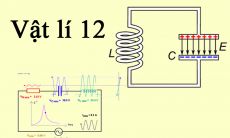Read the following passage and mark the letter A, B, C, or D on your answer sheet to indicate the correct answer to each of the following questions
Hay fever is a common allergic condition that affects up to one in five people at some point in their life. Symptoms of hay fever include watery and itchy eyes and a runny, congested nose. People suffering from hay fever may experience occasional wheezing and repeated bouts of sneezing and may even lose their sense of smell. Some may also have stopped-up ears. About 30 percent of those who suffer from hay fever may develop the symptoms associated with periodic asthma or a sinus infection. The allergen-antibody theory does not fully explain allergic reactions because the membranes and glands in eyes and ears are controlled by the independent nervous system, which keeps these organs in balance. But the independent nervous system itself is part of the emotional- response center and may cause the feelings of anger, and lack of self-confidence in reaction to allergy-causing substances.
The most common cause of hay fever is the pollen of ragweed, which blossoms during the summer and autumn. When airborne pollen particles, as well as mould, come into contact with the victim's membranes, they can cause allergic reactions that release histamine and result in virtual blockage of air passages. To prevent hay fever or to decrease the severity of its symptoms, contact with the ragweed pollen should be reduced. If possible, stay indoors when the pollen count is high (over 50). Remember to keep windows and doors shut in your house. If it gets too warm, draw the curtains to keep out the sun and lower the temperature. If possible, avoid drying clothes outside. This will help to stop pollen being brought into your house. If you need to go outside or you're travelling, avoid cutting grass, playing or walking in grassy areas and camping - particularly in the early morning; evening and at night, when the pollen count is at its highest. Don't forget to wear wraparound sunglasses to stop pollen getting in your eyes as well.
Although some communities have attempted to eliminate the plants that cause the reactions, elimination programs have not been successful because airborne pollen can travel considerable distances. Antihistamine can help with short but severe attacks. Over extended periods of time, however, patients are prescribed a series of injections of the substance to which they are sensitive in order to increase immunity and thus be relieved of the seasonal allergy.
Câu 42 : The word “blockage" in the passage is closest in meaning to ________.
Suy nghĩ và trả lời câu hỏi trước khi xem đáp án
Lời giải:
Báo saiKiến thức:
Đọc hiểu- từ vựng
Giải thích:
Từ “blockage” trong đoạn văn gần nghĩa nhất với __________.
A. dryness (n): sự khô khan B. bleeding (n): sự chảy máu, sự rỉ máu
C. obstruction (n): sự tắc nghẽn, sự cản trở D. enlargement (n): sự mở rộng
=> blockage (n): sự tắc nghẽn = obstruction
Thông tin: When airborne pollen particles, as well as mould, come into contact with the victim's membranes, they can cause allergic reactions that release histamine and result in virtual blockage of air passages.
Tạm dịch: Khi các hạt phấn hoa trong không khí, cũng như nấm mốc, tiếp xúc với màng của bệnh nhân, chúng có thể gây ra các phản ứng dị ứng giải phóng histamine và dẫn đến tắc nghẽn đường dẫn khí ảo.
Câu 43 : According to the passage, hay fever sufferers may also experience ________.
Suy nghĩ và trả lời câu hỏi trước khi xem đáp án
Lời giải:
Báo saiKiến thức: Đọc hiểu – chi tiết
Giải thích:
Theo đoạn văn, những người bị sốt cỏ khô (viêm mũi dị ứng) cũng có thể bị __________.
A. đói B. tắc nghẽn thần kinh C. thay đổi tâm trạng D. đau bụng
Thông tin: But the independent nervous system itself is part of the emotional- response center and may cause the feelings of anger, fear, resentment, and lack of self-confidence in reaction to allergy-causing substances.
Tạm dịch: Nhưng bản thân hệ thống thần kinh độc lập là một phần của trung tâm phản ứng cảm xúc và có thể gây ra cảm giác tức giận, sợ hãi, phẫn uất và thiếu tự tin khi phản ứng với các chất gây dị ứng.
Câu 44 : According to the passage, to avoid incidents of hay fever, patients need to ______.
Suy nghĩ và trả lời câu hỏi trước khi xem đáp án
Lời giải:
Báo saiKiến thức: Đọc hiểu - chi tiết
Giải thích: Theo đoạn văn, để tránh bất ngờ bị sốt cỏ khô, bệnh nhân cần __________
A. tăng sự tự tin của họ B. uống thuốc theo liều lượng
C. tránh tương tác với các bệnh nhân khác D. tránh tiếp xúc với phấn hoa
Thông tin: To prevent hay fever or to decrease the severity of its symptoms, contact with the ragweed pollen should be reduced.
Tạm dịch: Để ngăn ngừa bệnh sốt cỏ khô hoặc để giảm mức độ nghiêm trọng của các triệu chứng, cần giảm tiếp xúc với phấn hoa cỏ phấn hương.
Câu 45 : Which of the following can be inferred from the passage?
Suy nghĩ và trả lời câu hỏi trước khi xem đáp án
Lời giải:
Báo saiKiến thức: Đọc hiểu – suy luận
Giải thích:
Điều nào sau đây có thể được suy ra từ đoạn văn?
A. Các chất kích thích được vận chuyển bằng gió.
B. Con người không nên có phản ứng cảm xúc đối với các phản ứng dị ứng.
C. Sốt cỏ khô có thể gây ra phản ứng dị ứng nghiêm trọng và thậm chí tử vong.
D. Hệ thần kinh cân bằng các phản ứng dị ứng.
Thông tin: Remember to keep windows and doors shut in your house. If it gets too warm, draw the curtains to keep out the sun and lower the temperature. If possible, avoid drying clothes outside. This will help to stop pollen being brought into your house.
Tạm dịch: Hãy nhớ đóng cửa sổ và cửa ra vào trong nhà của bạn. Nếu trời quá ấm, hãy kéo rèm để tránh nắng và giảm nhiệt độ. Nếu có thể, hãy tránh phơi quần áo bên ngoài. Điều này sẽ giúp ngăn chặn phấn hoa được mang vào nhà của bạn.
Câu 46 : The word "sensitive" in the last paragraph is closest in meaning to _________.
Suy nghĩ và trả lời câu hỏi trước khi xem đáp án
Lời giải:
Báo saiKiến thức: Đọc hiểu – từ vựng
Giải thích:
Từ “sensitive” trong đoạn văn cuối cùng gần nghĩa nhất với _________.
A. susceptible (adj): nhạy cảm B. objective (adj): khách quan
C. adaptive (adj): thích nghi D. destructive (adj): phá hủy
=> sensitive (adj): nhạy cảm = susceptible
Thông tin: Over extended periods of time, however, patients are prescribed a series of injections of the substance to which they are sensitive in order to increase immunity and thus be relieved of the seasonal allergy.
Tạm dịch: Tuy nhiên, trong thời gian dài, bệnh nhân được chỉ định tiêm một loạt chất mà họ nhạy cảm để tăng khả năng miễn dịch và do đó giảm bớt chứng dị ứng theo mùa.
Câu 47 : Which best serves as the title for the passage?
Suy nghĩ và trả lời câu hỏi trước khi xem đáp án
Lời giải:
Báo saiKiến thức: Đọc hiểu – nhan đề
Giải thích:
Tiêu đề phù hợp cho bài đọc là gì?
A. Sốt cỏ khô - một bệnh nhiễm trùng do vi khuẩn B. Sốt cỏ khô - một chứng khó chịu theo mùa
C. Sốt cỏ khô - một bệnh phổi D. Sốt cỏ khô - thức ăn gia súc
Thông tin: The most common cause of hay fever is the pollen of ragweed, which blossoms during the summer and autumn.
Tạm dịch: Nguyên nhân phổ biến nhất của bệnh sốt cỏ khô là phấn hoa của cây cỏ phấn hương, nở hoa vào mùa hè và mùa thu.
Câu 48 : The word “Some” in paragraph 1 refers to ________.
Suy nghĩ và trả lời câu hỏi trước khi xem đáp án
Lời giải:
Báo saiKiến thức: Đọc hiểu – từ thay thế
Giải thích:
Từ "Some" trong đoạn 1 đề cập đến _________.
A. phản ứng dị ứng B. nhận thức cảm giác
C. triệu chứng D. bệnh nhân của bệnh sốt cỏ khô
Thông tin: People suffering from hay fever may experience occasional wheezing and repeated bouts of sneezing and may even lose their sense of smell. Some may also have stopped-up ears.
Tạm dịch: Những người bị sốt cỏ khô có thể thỉnh thoảng thở khò khè và hắt hơi nhiều lần và thậm chí có thể mất khứu giác. Một số người bị sốt cỏ khô) cũng có thể bị ù tai.
Đề thi thử THPT QG năm 2021 môn Tiếng Anh
Trường THPT Nguyễn Thái Học












